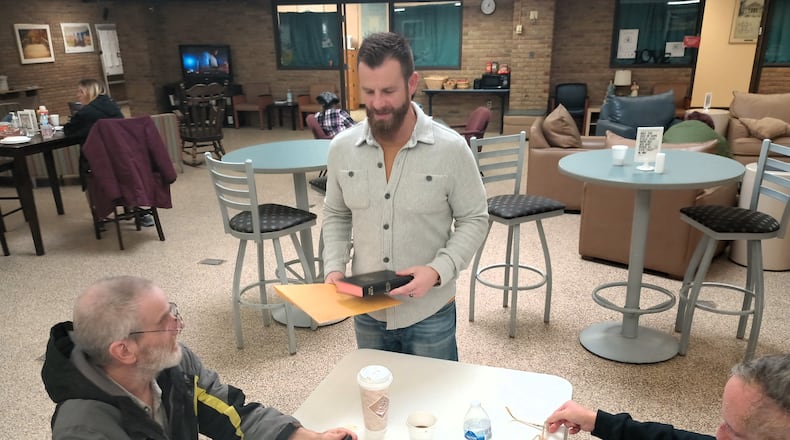Those staying at Bridges will have access to Emerge’s outpatient clinical services, including substance abuse and mental health counseling, intensive outpatient counseling, peer recovery support services, and others.
Guests will also be able to progress easily into Emerge’s trades education and peer support programs. Organizers expect the program will serve 80 or more people in the first few months.
“The goal is just to provide a higher level of service to the people here. (Bridges of Hope) is already doing a lot of these things already. They just didn’t have people with letters behind their names, and the ability to go for it,” said Emerge co-founder Kip Morris.
Clients at Bridges of Hope will also have access to recovery housing, partial hospitalization services, and the Trades Institute at the Emerge Center in Xenia Twp.
The Trades Institute, which offers courses in HVAC, plumbing, and business technology, soft-launched in the fall, and classes formally began in January, Morris said.
Emerge’s addiction recovery housing portion is currently only available to men, and its first cohort of 50 people is at capacity. The organization plans to add women’s residential recovery by the end of 2024.
Classes at the Trades Institute are open to anyone, both men and women.
Emerge has also hired on several staff at Bridges of Hope, taking on a portion of the shelter’s payroll expenses for the duration of the collaboration.
Michael Kinder, a former homeless guest at Bridges of Hope, now works doing maintenance at Emerge, and has already completed the kind of transition that other guests would go through as part of this program.
“The staff here was great. They gave me words of encouragement. The love here, it was very fantastic,” Kinder said of Bridges. “(Emerge) gave me a job, and that put more trust in myself, knowing that I have a trust with people again, to love people again. That’s a big deal. That’s awesome. And not only that, but Emerge has given me a more of a relationship with Jesus Christ,” he said.
Dustin Fields, Licensed Social Worker from Emerge, will oversee programming for the collaboration, which started at the beginning of this year.
“Very few of the homeless population are getting services for mental health and substance use,” he said. “Because very few are engaged in services, it leaves people sitting around. Some of them work, but other than that they are not advancing their life or getting out of their situation — there’s no victory or relief.”
Bridges of Hope has plans to add 50 more beds to its facility. The organization submitted a request to Xenia city planning and zoning, which was tabled following a public hearing in December.
About the Author


